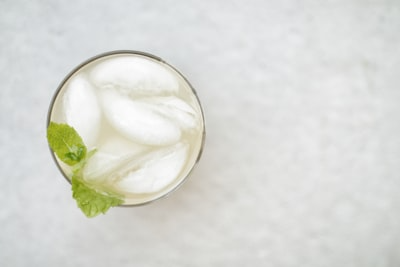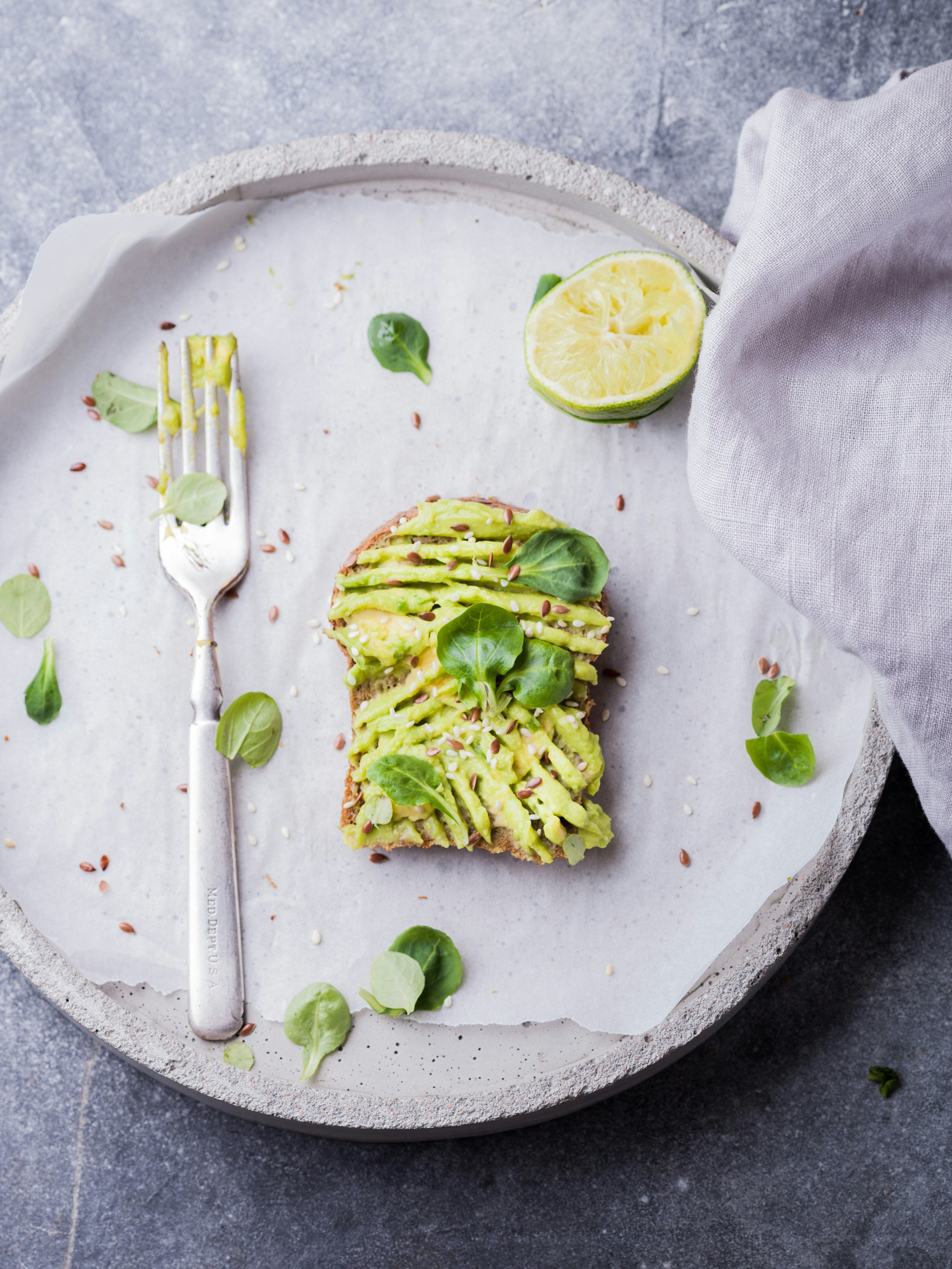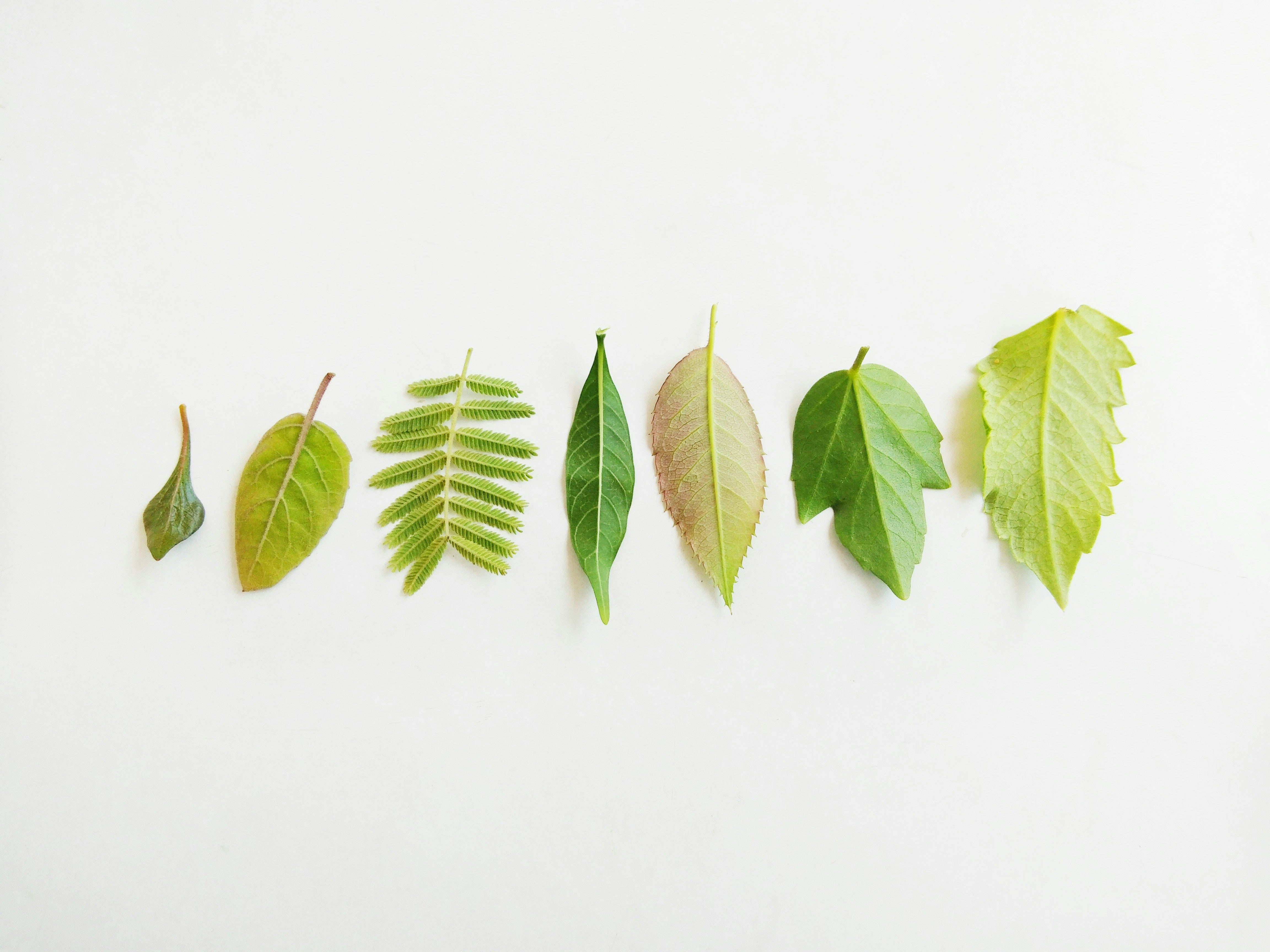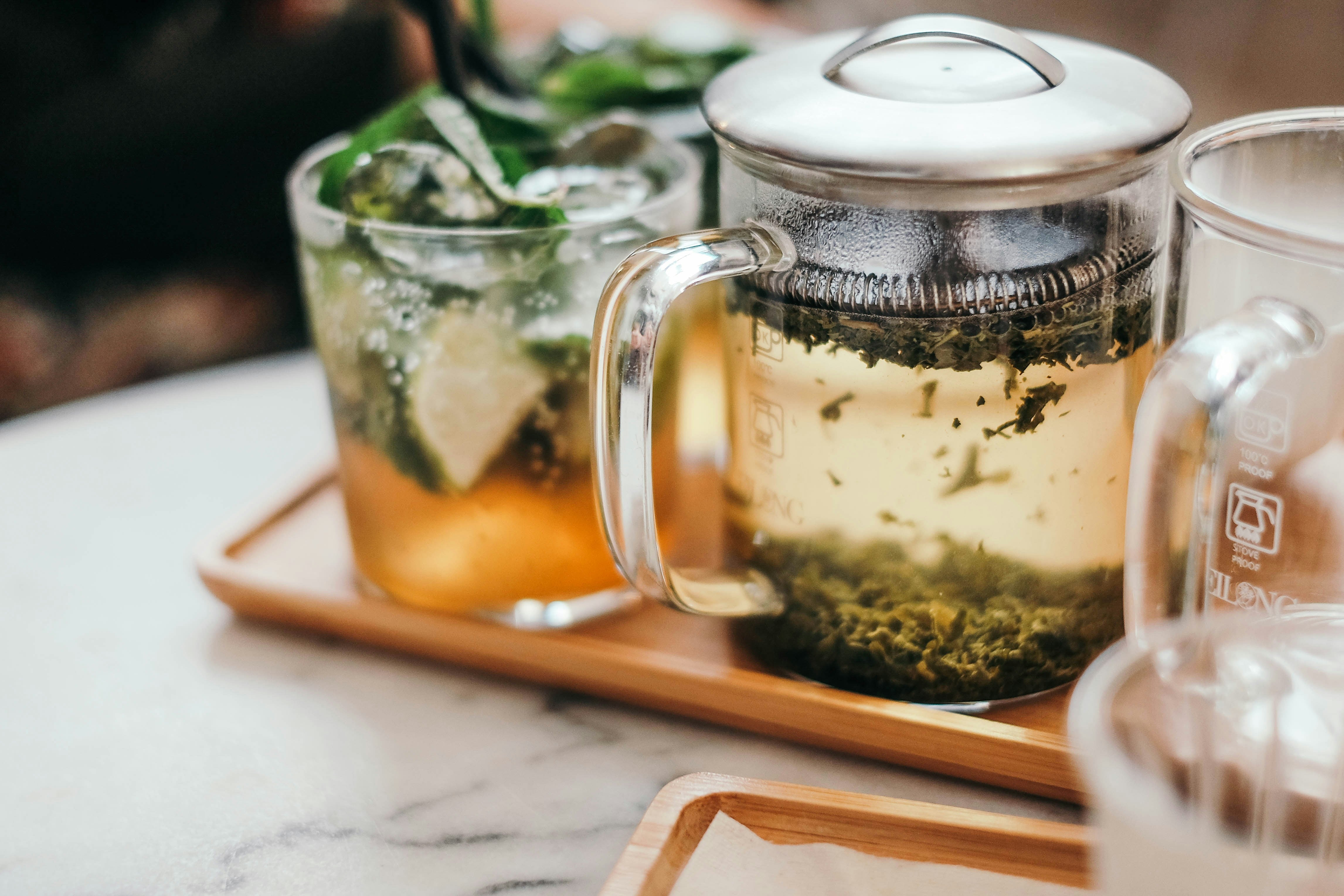
Cold Infusion Tea Benefits: Why It's the Future of Beverages
The loose leaf tea game is changing big time with cold infusion stepping in, bringing some cool advantages to the table that we haven't seen before. Employing this technique, the tea's essence is delicately drawn out, safeguarding its integrity in a manner previously unseen. Exploring this subject unveils the elegance of cold-infused tea's flavor spectrum and its distinctive edge over conventional hot brewing techniques.
Cold brew tea health benefits are vast; ranging from extended shelf life to reduced need for added sugars. Delving into the mechanics of taste extraction via cold water will unveil why it produces a mellower and more pleasant sweetness than what you get from using heat. Additionally, we'll delve into the way this approach fosters environmental sustainability by excluding the use of tea bags and streamlining manufacturing processes.
So if you're curious about crafting a gentler and more refreshing beverage that aligns with consumer preferences today, it's clear the path forward involves innovation and understanding your audience. Staying updated with evolving palates and wellness trends enables the crafting of beverages that not only delight the taste buds but also connect profoundly with those desiring nutritious choices. By adapting to these changes, companies can lead the beverage sector by offering drinks that cater to contemporary needs and set the stage for ongoing prosperity.
Table Of Contents:
- The Art of Cold Infusion: Revolutionizing Tea Production
- The Science Behind Flavor Extraction
- Shelf Life and Quality Preservation
- Reducing the Need for Added Sugar
- Crafting a Gentle and Refreshing Beverage
- Advantages Over Hot Water Extraction
- Sustainability and Efficiency in Tea Production
- Consumer Preferences and Market Trends
- FAQs in Relation to Cold Infusion Tea Benefits
- Conclusion
The Art of Cold Infusion: Revolutionizing Tea Production
Cold water extraction is changing the game in tea production. Employing this technique, which diverges from the usual method of using hot water, unveils a more nuanced palette of tastes inherent in the tea foliage.
Understanding Cold Water Extraction
Cold brew steeping interacts with tea leaves differently than hot water does. It extracts flavors gradually and gently, resulting in a sweeter and softer taste profile with increased antioxidant activity. Think of it as slow cooking for teas; it takes longer but produces remarkable results without any astringent taste which preserves antioxidant compounds.
By keeping the heat away, this method safeguards the fragile essence within the tea leaves, ensuring that their full flavor and beneficial properties remain intact. As a result, you get a cup that's not just about caffeine but an intricate dance of flavors.
Benefits of Cold Infused Tea
One major advantage is cold tea brewing is extended shelf life. When brewed using cold methods, teas can be stored for several days without losing their quality or freshness. That’s because this technique doesn't involve heat which can accelerate degradation processes.
Besides longevity, there's also no need for added sugar with cold infusions since they naturally extract less tannin. Less tannin means your brew will be smoother on the palate without any bitterness often masked by sweeteners in traditional teas.
Focusing on crafting beverages through cold infusion brings forth not only unique flavor profiles but ensures each sip contributes to gentle refreshment and complexity without overwhelming bitterness - ideal characteristics sought after by today's discerning consumers seeking healthier beverage options. Discover how making small changes like switching to cold brews could influence market trends positively towards subtler tastes.
The Science Behind Flavor Extraction
When you brew tea with cold water, a magical transformation happens. This method, known as cold infusion or cold brewing, pulls flavors from the leaves in a way that heat simply can't match. It's not just about being less bitter; it’s about unlocking a spectrum of taste that hot water overshadows.
Flavors Dissolved in Cold Water Are Sweeter and Softer Compared to Those Released in Hot Water
Cold water extraction is like slow cooking for teas. It gently coaxes out the delicate flavors without applying the brute force of boiling temperatures which often destroy subtleties and introduce bitterness due to high tannin release. Studies have found that this approach yields flavors that are both milder and more pleasing, as it unlocks a unique blend of elements not accessible at elevated heat levels.
This difference isn’t just scientific jargon; you can taste it. Think about biting into a ripe peach versus one that’s still hard—the former bursts with sweetness while the latter might make your mouth pucker up a bit. This disparity is akin to the experience of savoring tea that's been steeped in cold water, offering a subtler essence compared to its hot-brewed counterpart.
Gentle Flavor Release
Cold water doesn't assault tea leaves like boiling water does. Instead of causing cell rupture—which releases more tannins leading to bitterness—it maintains integrity allowing only soluble elements responsible for aroma and flavor to dissolve slowly over time. By embracing this method, we're treated to a symphony of subtle flavors with every sip, avoiding the sensory overload that often accompanies more forceful brewing approaches.
In essence, using cold water lets us experience teas as they were meant to be: complex beverages full of intricate flavors waiting patiently beneath their surfaces—ready for discovery through gentle persuasion rather than aggressive extraction methods typically employed by traditional brewing techniques.
Cold brewing tea isn't just a trend; it's a science that brings out sweeter, softer flavors by gently extracting compounds without the bitterness. Think slow cooking but for your tea, giving you layers of nuanced taste in every sip.
Shelf Life and Quality Preservation
Cold infused tea can be stored for several days without a reduction in quality.
This is a game-changer for both tea producers and enthusiasts. Using the conventional method of steeping tea with boiling water speeds up the breakdown of its nuanced flavors and fragrances. Cold infusion, on the other hand, gently extracts these flavors over time, maintaining their integrity longer once brewed.
The key lies in the slow extraction process. By steeping tea leaves in cold water, less oxidation occurs compared to hot water brewing. Oxidation is often what leads to bitterness and staleness in teas left sitting out or stored improperly after brewing with heat. For those looking into extending the freshness of their brews at home or commercially, studies have shown that cold-infused teas not only retain more antioxidants but also preserve their taste profiles far better over time.
Exploring this method unlocks potential not only in enhancing longevity but also in revolutionizing how top-tier teas are packed and shared, mitigating the risk of flavor loss during their journey or while being stored. Businesses focusing on artisanal or premium teas might find this especially beneficial as they can now guarantee an extended fresh-tasting product to customers without relying heavily on preservatives or specialized packaging materials. Research supports this by highlighting how antioxidant levels remain consistent in cold-infused beverages even after a few days of refrigeration.
Reducing the Need for Added Sugar
Cold infusions are changing the game by not extracting as much tannin, which directly impacts our need to sweeten tea. Traditional hot water methods pull out more tannins from tea leaves, leading to a bitter taste that often has us reaching for sugar or honey.
Cold water extraction steps into the spotlight, effortlessly minimizing tannin levels without demanding extra sweetness. By using cold water, the process naturally limits the amount of tannin pulled from the leaves. The result? A sweeter tea and a softer and more milder flavor profile that doesn't call for additional sweeteners.
Gentle Flavor Release
The magic of this technique stems from the unique interaction between cold water and tea leaves, revealing flavors gradually. Unlike boiling water, which aggressively breaks down cell walls releasing all contents rapidly, cold water gently coaxes flavors out over time.
This slow dance between liquid and leaf ensures only desired flavors make their way into your cup. It's akin to slowly simmering ingredients when cooking, allowing each component to release its best qualities without becoming overpowering or bitter.
Avoiding high levels of tannin extraction does more than just reduce bitterness—it also allows subtle notes within the tea to shine through. Think of it like listening to music on a finely tuned stereo; you're able to hear every layer clearly without any one sound dominating too harshly.
The result is a beverage that offers complexity and depth without needing sugar as a crutch for palatability. And since there’s less demand for added sweetness, studies suggest this could have positive implications for our overall health by reducing unnecessary sugar intake in our diets.
Crafting a Gentle and Refreshing Beverage
By steeping in cold water, tea evolves into a delicately complex and invigorating drink, unlike the simplicity found in its hot-brewed siblings. Employing this technique, as opposed to using hot water, unveils subtler tastes that often remain hidden. The process involves steeping tea leaves or herbs in cold water for an extended period. Exploring this technique isn't merely a test of endurance; it's an adventure into discovering a palette of flavors previously concealed from your senses.
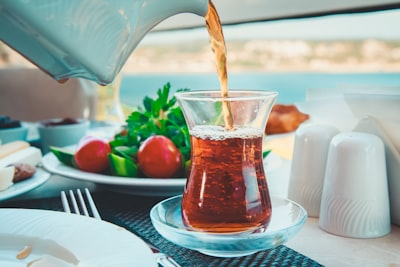
Understanding Cold Water Extraction
The science behind cold water extraction is quite straightforward but profoundly impacts the final brew. Cold water brewing method extracts flavor more slowly than hot water, resulting in a smoother taste profile without the bitterness often associated with overbrewed teas. Embark on crafting your very own chilled brew iced tea, diving into a world where the gentle extraction method unveils a symphony of flavors.
This slower infusion process doesn't agitate the plant cells as much as boiling does, which means less tannin is released into your cup. Less tannin equals less bitterness and acidity—a win-win for those who prefer their beverages on the milder side.
Benefits of Cold Infused Tea
Exploring this method further, both casual sippers and culinary experts can discover tangible perks beyond merely enhancing flavor profiles. One significant advantage is that these teas can be stored longer without degrading in quality—think several days rather than hours—giving you more flexibility around consumption times.
Moreover, because lower temperatures extract fewer bitter compounds like tannins from leaves compared to hot methods, studies suggest this could also reduce any perceived need for added sugars or sweeteners by consumers seeking healthier options without compromising on taste.
Advantages Over Hot Water Extraction
Gentle Flavor Release
Cold brewing stands out for its ability to gently coax flavors from tea leaves. This method prevents the cell walls in the leaves from rupturing, a common occurrence with hot water extraction. When cells rupture, they release not only flavor but also bitterness and unwanted compounds. Employing cold infusion, the teas preserve their gentle and nuanced flavor essence by ensuring the cellular structure of the leaves remains unbroken.
Utilizing this method shines particularly with aromatic foliage such as lemon myrtle, safeguarding their nuanced essences from the brashness often ushered in by elevated heat. The subtle complexities of such botanicals are preserved rather than being overwhelmed by the harshness that high temperatures can introduce.
Complexity Without Bitterness
Dodging the over-extraction of tannins marks yet another point where cold steeping outshines age-old brewing practices. Tannins are responsible for the bitter taste often found in overly steeped or excessively hot brewed teas. Since cold water extracts fewer tannins, the resulting beverage is free from this bitterness, allowing other nuanced flavors to shine through.
A study on flavor profiles affected by different brewing techniques confirms that beverages prepared with colder water exhibit a complexity untainted by bitterness—a characteristic highly sought after among tea enthusiasts looking for purity in their cup.
In practice, making cold infusions like those made with lemon myrtle involves simply immersing the leaves in cool water and letting them steep over an extended period—often overnight—in contrast to minutes required by hot brews. Cold extractions allow for gentle flavor extraction without rupturing cells, presenting a craft approach to tea production focused on quality and sensory pleasure above all else.
Sustainability and Efficiency in Tea Production
Integrating cold brew techniques into mass tea-making processes brings noteworthy gains for the planet and smoothens operations considerably. Implementing this strategy not only makes the production line more efficient but also resonates with an increasing number of consumers who are calling for eco-friendly methods.
Understanding Cold Water Extraction
The science behind cold water extraction is fascinating. Unlike traditional hot water methods, cold water preserves the delicate flavors of tea leaves, resulting in a more refined taste profile. This method involves steeping tea leaves in cold water over an extended period, which gently extracts their natural essence without releasing excessive tannins or caffeine.
Employing this method has proven to significantly elevate the taste nuances, positioning it as a top selection for high-end teas. For producers looking to innovate within their product lines while minimizing environmental impact, research on cold brew techniques offers compelling insights into its advantages.
Benefits of Cold Infused Tea
Delving into the world of cold-infused leaf tea unveils a plethora of benefits that promise to transform the realm of tea production, emphasizing sustainability and amplifying efficiency. Firstly, it extends shelf life significantly compared to traditionally brewed teas because cooler temperatures inhibit bacterial growth. This quality allows manufacturers to reduce waste and improve inventory management.
Furthermore, as this method extracts fewer bitter compounds like tannins, there's less need for added sugars or artificial sweeteners—appealing to health-conscious consumers seeking natural beverage options.
Last but not least, cold infusion uses less energy than boiling water does. It reduces carbon footprint. This positions brands favorably within eco-aware markets.
In the quest for sustainability, companies find cold brewing a fresh approach that adeptly aligns with contemporary needs.
Consumer Preferences and Market Trends
Tea-making methods have evolved greatly, leaning into the demand for drinks that are both wholesome and closer to nature. As people increasingly crave smoother taste free from sweeteners or synthetic additives, cold infusion stands at the forefront of industry innovation. This method not only caters to these preferences but also introduces a novel experience in tea consumption.
Cold water extraction stands out because it extracts flavors gently, resulting in teas that are sweeter and softer compared to their hot-brewed counterparts. Research has illustrated that this approach not only amplifies the taste nuances of tea but also maintains its nutritional virtues intact.
In terms of shelf life, cold infused teas boast a longer freshness period which appeals to both retailers and consumers alike. The ability to store these beverages for several days without quality reduction aligns with the growing demand for convenience and sustainability among today's shoppers.
Furthermore, by reducing tannin extraction, there’s less need for sweeteners thus supporting healthier lifestyle choices. People now lean towards drinks that offer natural sweetness and complexity of flavor—qualities that cold-infused teas deliver effortlessly.
The crafting process itself adds value; producing a gentle yet refreshing beverage perfect for any time of day. It provides an intriguing complexity unlike anything available through traditional hot brewing methods—a factor driving curiosity and trial among tea enthusiasts eager for new experiences.
This evolution reflects broader consumer trends emphasizing wellness, environmental consciousness, and personalized experiences—an exciting development pointing towards continued innovation within the tea sector. As market demands evolve, so too does the approach manufacturers take in meeting these needs head-on with creative solutions like cold infusion.
Is cold infusion tea good for you?
Cold infusion tea keeps nutrients intact and can boost hydration, making it a solid pick for health.
What does cold tea do to your body?
Cold brewed tea gently nudges up your metabolism and hydrates you without the jitters hot brews might cause especially in caffeinated teas such as green tea.
What does cold brewing tea do?
This method pulls out flavors minus the bitterness, giving you a smoother cup with less caffeine kickback.
What are the benefits of infused tea?
Infused teas offer a bouquet of flavors that can enhance mood, aid digestion, and promote relaxation sans added sugars.
Conclusion
Sipping on cold-brewed tea steep is like embarking on a voyage towards improved wellness, transforming our beverage preferences with every flavorful gulp. You've seen how this cold brewing method elevates flavor while cutting down on sugars and enhancing free radicals.
Remember, the gentler extraction process preserves those delicate notes we love which sometimes get lost in hot-water extracts. And with an extended shelf life, your favorite brew is ready whenever you are.
Consider sustainability; embracing cold brewing infusions means less energy spent heating water. Switching up our daily habits a bit can lead to significant environmental benefits.
So let's rethink our beverage habits. Cold-infused teas offer not just a refreshing alternative but also align with healthier lifestyle choices and environmental consciousness.
Tea innovation, fueled by evolving preferences and a dedication to health by study researchers, isn't going anywhere. Let’s all take part in this delicious revolution.


